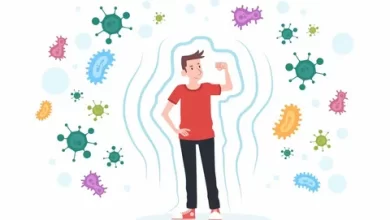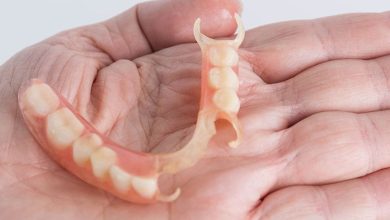What you don’t know About The Schizophrenia Disease


Schizophrenia is a serious mental disorder in which people interpret reality abnormally. Schizophrenia may result in some combination of hallucinations, delusions, and extremely disordered thinking and behavior that impairs daily functioning, and can be disabling. People with schizophrenia require lifelong treatment.
Table of Contents
Types Of Schizophrenia
Paranoid Schizophrenia
Paranoid schizophrenia is the kind of schizophrenia that is usually exaggerated in movies and by the media. It is the most common form of schizophrenia and is usually characterized by positive schizophrenia symptoms like delusions and hallucinations.
Catatonic Schizophrenia
This rare type of schizophrenia is unique in that it involves physical movement. Catatonia can be its own disorder, but people with catatonic schizophrenia often have negative symptoms of schizophrenia and are not very responsive.
They may not react to stimuli, stay in strange body positions, make odd movements, or even have rigid limbs that will stay in the position that they are moved to.
Hebephrenic or Disorganized Schizophrenia
Hebephrenic schizophrenia is also called disorganized schizophrenia because these people usually have disorganized speech and behavior.
They may also have inappropriate emotional responses or lack of any emotional response.
Residual Schizophrenia
Residual schizophrenia is used when people have a past history of positive schizophrenia symptoms but now only have lingering negative symptoms or none at all.
These lingering symptoms may include poor attention, some mental disorganization, and emotional withdrawal.
Undifferentiated Schizophrenia
Undifferentiated schizophrenia is the classification given to people who may not fit into any of these other classifications of schizophrenia because they are showing symptoms for more than one kind. These people may exhibit both positive and negative symptoms.
While there are different types of schizophrenia, these disorders fall on a spectrum and should be treated as such. Schizophrenia treatment will differ not only based on the type of schizophrenia, but also on the individual. Typically, treatment will include a combination of medicine and psychotherapy.
While schizophrenia of every kind can interfere with a person’s everyday life, to make matters worse, some people who are struggling to manage or cope with their symptoms may turn to drugs or alcohol. When this becomes their norm, they may develop a substance abuse disorder and a dual diagnosis treatment is often required to treat both problems.
Causes of Schizophrenia
Increased risk
Genetics
Schizophrenia tends to run in families, but no single gene is thought to be responsible.
It’s more likely that different combinations of genes make people more vulnerable to the condition. However, having these genes does not necessarily mean you’ll develop schizophrenia.
Evidence that the disorder is partly inherited comes from studies of twins. Identical twins share the same genes.
In identical twins, if a twin develops schizophrenia, the other twin has a 1 in 2 chance of developing it, too. This is true even if they’re raised separately.
In non-identical twins, who have different genetic make-ups, when a twin develops schizophrenia, the other only has a 1 in 8 chance of developing the condition.
While this is higher than in the general population, where the chance is about 1 in 100, it suggests genes are not the only factor influencing the development of schizophrenia.
Brain development
Studies of people with schizophrenia have shown there are subtle differences in the structure of their brains.
These changes are not seen in everyone with schizophrenia and can occur in people who do not have a mental illness. But they suggest schizophrenia may partly be a disorder of the brain.
Neurotransmitters
Neurotransmitters are chemicals that carry messages between brain cells.
There’s a connection between neurotransmitters and schizophrenia because drugs that alter the levels of neurotransmitters in the brain are known to relieve some of the symptoms of schizophrenia.
Research suggests schizophrenia may be caused by a change in the level of 2 neurotransmitters: dopamine and serotonin.
Some studies indicate an imbalance between the 2 may be the basis of the problem. Others have found a change in the body’s sensitivity to the neurotransmitters is part of the cause of schizophrenia.
Pregnancy and birth complications
Research has shown people who develop schizophrenia are more likely to have experienced complications before and during their birth, such as:
- a low birthweight
- premature labour
- a lack of oxygen (asphyxia) during birth
It may be that these things have a subtle effect on brain development.
Triggers
Triggers are things that can cause schizophrenia to develop in people who are at risk.
These include:
Stress
The main psychological triggers of schizophrenia are stressful life events, such as:
- bereavement
- losing your job or home
- divorce
- the end of a relationship
- physical, sexual or emotional abuse
These kinds of experiences, although stressful, do not cause schizophrenia. However, they can trigger its development in someone already vulnerable to it.
Drug abuse
Drugs do not directly cause schizophrenia, but studies have shown drug misuse increases the risk of developing schizophrenia or a similar illness.
Certain drugs, particularly cannabis, cocaine, LSD or amphetamines, may trigger symptoms of schizophrenia in people who are susceptible.
Using amphetamines or cocaine can lead to psychosis, and can cause a relapse in people recovering from an earlier episode.
Research has shown that teenagers and young adults who use cannabis regularly are more likely to develop schizophrenia in later adulthood.
Treatment
Schizophrenia requires lifelong treatment, even when symptoms have subsided. Treatment with medications and psychosocial therapy can help manage the condition. In some cases, hospitalization may be needed.
A psychiatrist experienced in treating schizophrenia usually guides treatment. The treatment team also may include a psychologist, social worker, psychiatric nurse and possibly a case manager to coordinate care. The full-team approach may be available in clinics with expertise in schizophrenia treatment.
Medications
Medications are the cornerstone of schizophrenia treatment, and antipsychotic medications are the most commonly prescribed drugs.
They’re thought to control symptoms by affecting the brain neurotransmitter dopamine.
The goal of treatment with antipsychotic medications is to effectively manage signs and symptoms at the lowest possible dose.
The psychiatrist may try different drugs, different doses or combinations over time to achieve the desired result.
Other medications also may help, such as antidepressants or anti-anxiety drugs. It can take several weeks to notice an improvement in symptoms.
Because medications for schizophrenia can cause serious side effects, people with schizophrenia may be reluctant to take them. Willingness to cooperate with treatment may affect drug choice.
For example, someone who is resistant to taking medication consistently may need to be given injections instead of taking a pill.
Ask your doctor about the benefits and side effects of any medication that’s prescribed.
For any important information please contact us Email GadgetsNg info@gadgetsng.com
[Button id="1"]



